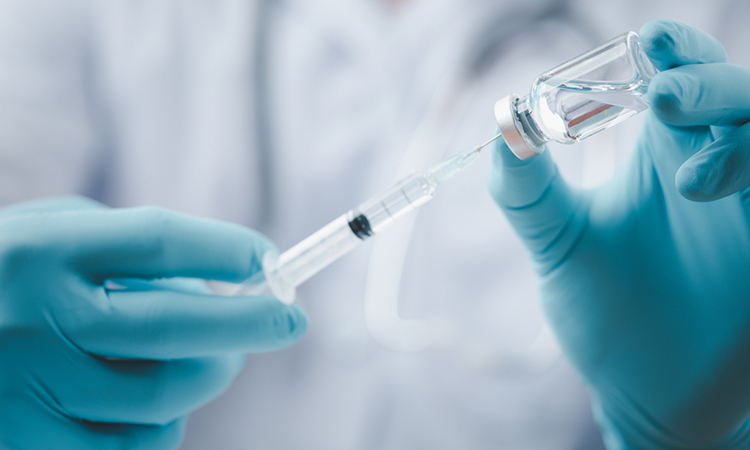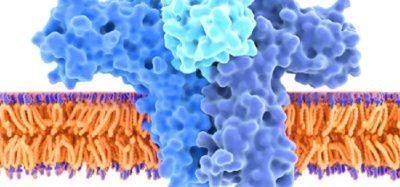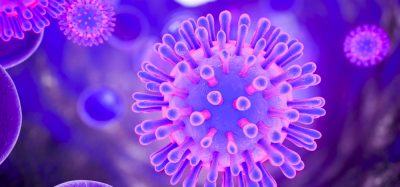Novel COVID-19 vaccine could offer broad protection from coronaviruses
Posted: 20 April 2021 | Victoria Rees (Drug Target Review) | No comments yet
A new COVID-19 vaccine could provide protection from severe infection from a range of coronaviruses, studies in pigs have shown.

A new COVID-19 vaccine could provide protection against existing and future strains of SARS-CoV-2 and other coronaviruses, costing about $1 a dose. According to its developers from the University of Virginia (UVA) Health, US, the vaccine has shown promising results in early animal testing.
The researchers found that the vaccine prevented pigs from being becoming ill with a pig model of coronavirus, porcine epidemic diarrhoea virus (PEDV).
“Our new platform offers a new route to rapidly produce vaccines at very low cost that can be manufactured in existing facilities around the world, which should be particularly helpful for pandemic response,” said one of the lead researchers, Dr Steven Zeichner.
The new vaccine-production platform involves synthesising DNA that directs the production of a piece of the virus that can instruct the immune system how to mount a protective immune response against the virus.
That DNA is inserted into another small circle of DNA called a plasmid that can reproduce within bacteria. The plasmid is then introduced into bacteria, instructing the bacteria to place pieces of proteins on their surfaces. The technique uses the bacteria E. coli.
One major innovation is that the E. coli have had a large number of its genes deleted. Removing many of the bacteria’s genes, including genes that make up part of its exterior surface or outer membrane, appears to substantially increase the ability of the immune system to recognise and respond to the vaccine antigen placed on the surface of the bacteria.
To produce the vaccine, the bacteria expressing the vaccine antigen are grown in a fermenter and then killed with a low concentration of formalin.
“Killed whole-cell vaccines are currently in widespread use to protect against deadly diseases like cholera and pertussis. Factories in many low-to-middle-income countries around the world are making hundreds of millions of doses of those vaccines per year now, for a $1 per dose or less,” Zeichner said. “It may be possible to adapt those factories to make this new vaccine. Since the technology is very similar, the cost should be similar too.”
The researchers say the entire process, from identifying a potential vaccine target to producing the gene-deleted bacteria that have the vaccine antigens on their surfaces, can take place very quickly, in only two to three weeks, making the platform ideal for responding to a pandemic.
The new vaccine takes an unusual approach in that it targets a part of the Spike (S) protein of the coronavirus, the “viral fusion peptide,” that is essentially universal among coronaviruses. The fusion peptide has not been observed to differ at all in the many genetic sequences of SARS-CoV-2.
The team made two vaccines, one designed to protect against COVID-19 and another designed to protect against PEDV. PEDV and SARS-CoV-2, like all coronaviruses, share several of the amino acids that constitute the fusion peptide. PEDV infects pigs, causing diarrhoea, vomiting and high fever.
One advantage of studying PEDV in pigs is that it enabled the team to study the ability of the injections to offer protection against a coronavirus infection in its native host. According to the researchers, the other models that have been used to test COVID-19 vaccines study SARS-CoV-2 in non-native hosts, such as monkeys, hamsters or mice that have been genetically engineered. Pigs are also very similar in physiology and immunology to people.
The researchers observed that both the vaccine against PEDV and the vaccine against SARS-CoV-2 protected the pigs against illness caused by PEDV. The vaccines did not prevent infection, but they protected the pigs from developing severe symptoms, much like the observations made when primates were tested with candidate COVID-19 vaccines. The vaccines also primed the immune system of the pigs to mount a much more vigorous immune response to the infection. If both the PEDV and the COVID-19 vaccines protected the pigs against disease caused by PEDV and primed the immune system to fight the disease, it is reasonable to think that the COVID-19 vaccine would also protect people against severe COVID-19 disease, the scientists say.
The findings were published in PNAS.
Related topics
Drug Delivery, Drug Development, Immunology, Protein, Vaccine
Related conditions
Covid-19
Related organisations
University of Virginia Health
Related people
Dr Steven Zeichner






